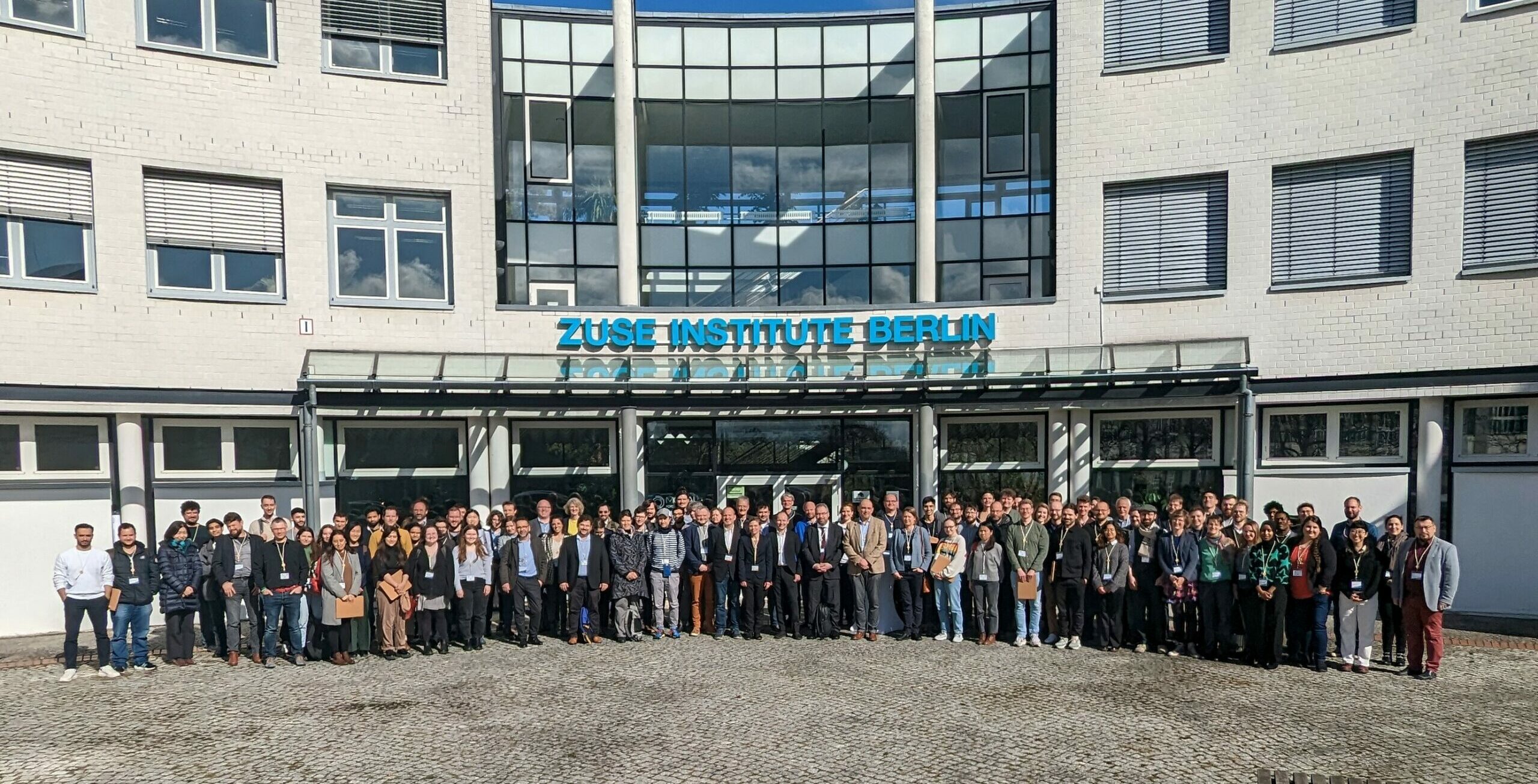At the “First National Conference on Infectious Disease Modeling”, more than 100 national and international scientists gathered in Berlin for the first time in order to jointly promote the strengthening of modeling competence in Germany.
The BMBF-funded Modeling Network for Serious Infectious Diseases (MONID) proudly looks back on its first successful annual conference. From Wednesday, March 15, 2023 to Friday, March 17, 2023, more than 100 modelers gathered at the Zuse Institute Berlin to exchange their research results at the “First National Conference on Infectious Disease Modeling” and to discuss the ways in which modeling can be designed and communicated in the future. The outcome: three days full of exciting lectures, intensive discussions, talented young modelers and a lot of potential to make Germany internationally visible as a research location in the field of infectious disease modeling.
At the start of the conference, the participants were officially welcomed by high-ranking representatives from politics and science: The President of the Zuse Institute Prof. Christof Schütte, the Parliamentary State Secretary Mario Brandenburg and the Vice President of the Robert Koch Institute Prof. Lars Schaade gave their greetings to the participants. In his video message, State Secretary Mario Brandenburg emphasized the particular importance of epidemiological models of infectious diseases. Being able to predict infection outbreaks and evaluate containment measures is an enormously valuable tool in the fight against infectious diseases. Representatives of the BMBF as the network’s sponsor, as well as the employees responsible at the project management organization Jülich, were also present to see for themselves the fruits of their research funding.
The focus of the first annual meeting was primarily on networking among the members of MONID and presenting their research activities and initial results. The topics of the research focus of the consortia range from wastewater analysis to the optimization of traffic flows in times of pandemic, the importance of heterogeneous population structures on infection outbreaks, the investigation of school closures and other measures in the course of the Covid 19 pandemic, the epidemic-related resource requirements of hospitals, and the consideration of the interactions of infodemics and pandemics (learn more).
Exciting input for discussions was also provided by the four invited international keynote speakers, whose presentations provided insight into the experiences of modelers during the Covid 19 pandemic across Europe. Mark Jit from the London School of Hygiene and Tropical Medicine reported from the UK on the challenges faced by modelers during the pandemic and the lessons learned for the future. Niki Popper from the TU Vienna and Gergely Röst from the University of Szeged gave the conference participants a corresponding insight into the national challenges and the handling of the pandemic in Austria and Hungary. Frank Sandmann from the European Centre for Disease Prevention and Control (ECDC) completed the reports with his keynote on the pan-European perspective on Covid-19 pandemic modeling and his insights from the European COVID-19 Scenario Hub. All international experts agreed on one thing: sustainably funded, national modeling capabilities are an important pillar for collaborative pandemic response at the European level.
Another highlight of the conference was the poster session organized as part of the promotion of young researchers, in which 19 doctoral students from the various research groups had the opportunity to participate. In unanimous elevator pitches, as usually seen in the startup sector, the young modelers presented their research work in an inspiring way and invited the participants to discuss their posters at the session that followed in the evening. The promotion of young scientists is a key concern of the network, which is why prizes were awarded to the three best posters.
In summary, the conference has once again demonstrated how much potential lies within the scientific community of modelers in Germany and how dedicated and inspired research is being carried out in this field. Highly complex infection epidemiological models can only be developed in an interdisciplinary and collaborative way. They are an indispensable tool in the fight against the uncontrolled spread of new and already endemic pathogens and a way to avoid the overload of health care even outside times of pandemic. In the future, this will require continuous efforts and investments in the development of structures to promote modeling expertise in order to establish Germany as a leading research location in this field. Global health problems such as investigating and combating severe infectious diseases can only be tackled together, as the executive board of the modeling network emphasized once again at the end of the conference.

